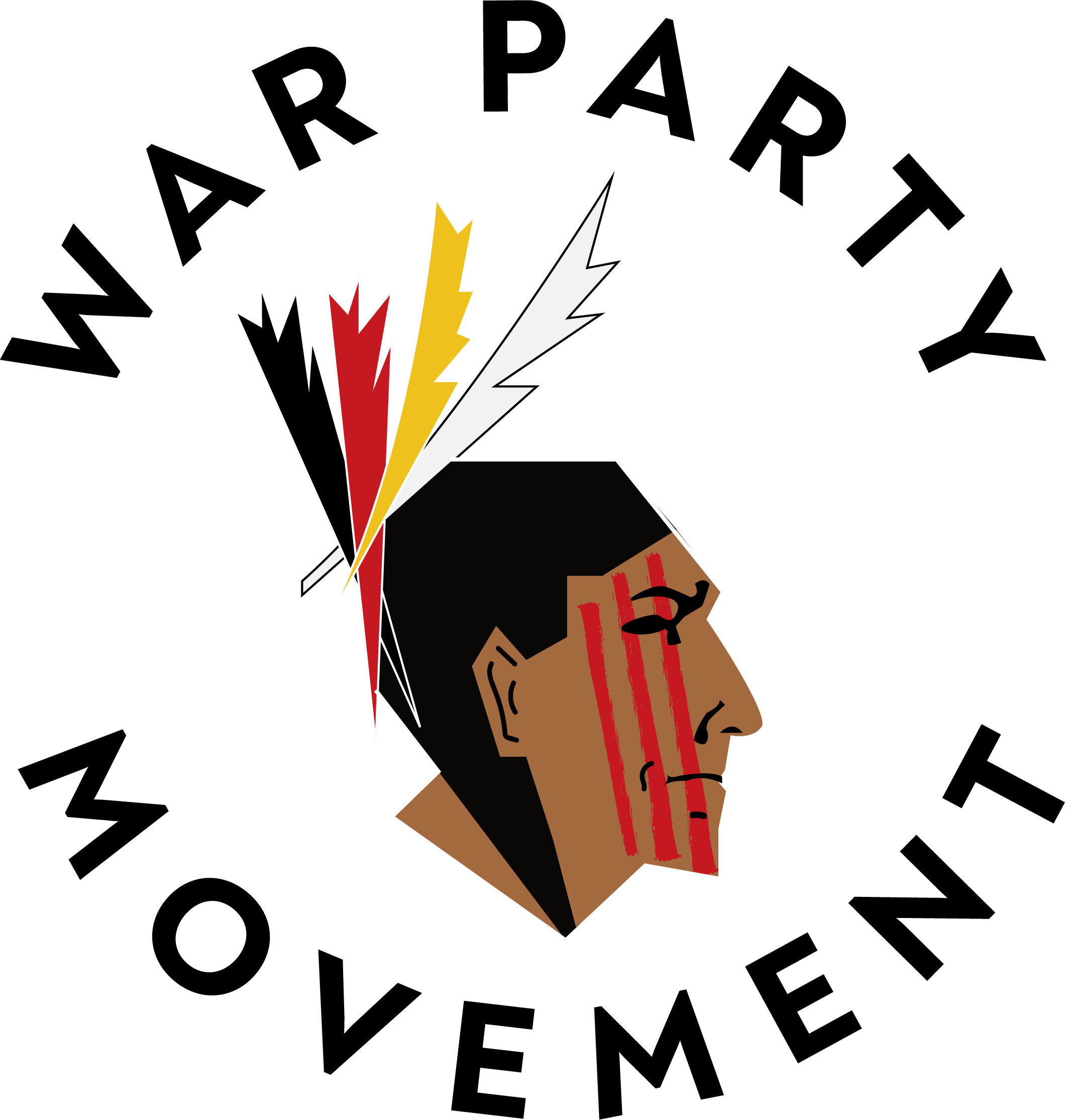War Party Movement


Learn MoreAbout War Party Movement
Origins of War Party Movement
Throughout history and still today, Native American Indians serve in the Armed Forces at a higher rate than any other demographic. The WPM insignia is inspired by the Alamo Scouts (U.S. 6th Army Special Reconnaissance Unit). By some accounts, as many as a quarter of the enlisted graduates of the first Alamo Scouts training class were American Indian. Throughout their 108 reconnaissance and raider missions in the southwest Pacific, they never lost a single man.
It is this triumph of dedication that inspired the War Party Movement. Like the Alamo Scouts, the purpose of WPM is to liberate the oppressed, using the knowledge, tradition, outdoorsmanship, survival skills, unity, and bravery exhibited by American Indians throughout history.
However, you don’t need any special skills to join the movement. By wearing the art pieces on this site, you’re starting a conversation on the issues facing women and children domestically and abroad. In this way, you’re contributing financially to saving lives and you’re breaking apart the normalized culture of harming the most vulnerable through provoking thoughtful communication.
Founder’s Story
WPM Founder Jeremiah Wilber’s earliest memories are of his mother testifying in court to save abused Indian children from a foster home. A Mescalero Apache, she was one of the strongest women warriors to dedicate her life to fighting the cycle of abuse experienced by women and children in tribal communities across America. He would spend his childhood helping her rescue women from domestic violence and children from sexual abuse. Raised in Montana, he became an avid hunter, fisherman, honing his cowboying skills.
He enlisted in the US Army after graduating high school, attending the Military Police School at Fort Leonard Wood. As an MP, he served two combat tours, completed the Sapper Leader Course and Army Ranger Course, and subsequently attended Special Forces Assessment and Selection (SFAS). He was selected for the elite Green Berets, where he served in 3rd Special Forces Group as a Special Forces Communications Sergeant and in 10th Special Forces Group as a Special Forces Operations (Team) Sergeant with multiple combat rotations to Iraq, Afghanistan, and Africa.
Throughout his service, Jeremiah was more than aware that, no matter the location or level of warfare, those impacted most were children. While his own children sacrificed time with their father while he served, he was horrified by the level of abuse leveled against children in war zones. In his post-military career, Jeremiah worked with the NGO's to rescue children from sex trafficking, slavery, and sacrifice around the world.
Knowing that hundreds of thousands of American women and children are trafficked and abused every year, he started leveraging his platform to raise awareness of how to end this crisis. Through his upbringing, training, and experience, Jeremiah has dedicated every moment to alleviating the suffering of others, and passing on his knowledge to all he comes into contact with.
The Movement
As WPM scales, the Movement intends to take at-risk youth out of their current situations and provide them with real-world experiences with veterans, Cowboys, and Native American communities to offer alternatives to their current way of life. WPM will create our own opportunities while assisting existing nonprofits with their operations by whatever financial or practical means available.
Although the work originated to support Native American communities, WPM acknowledges that the abuse of women and children is an ever-growing problem. Whether it’s major cities, rural townships, or across the border, WPM will facilitate and fund programs to fundamentally eradicate normalized cycles of social decline.
